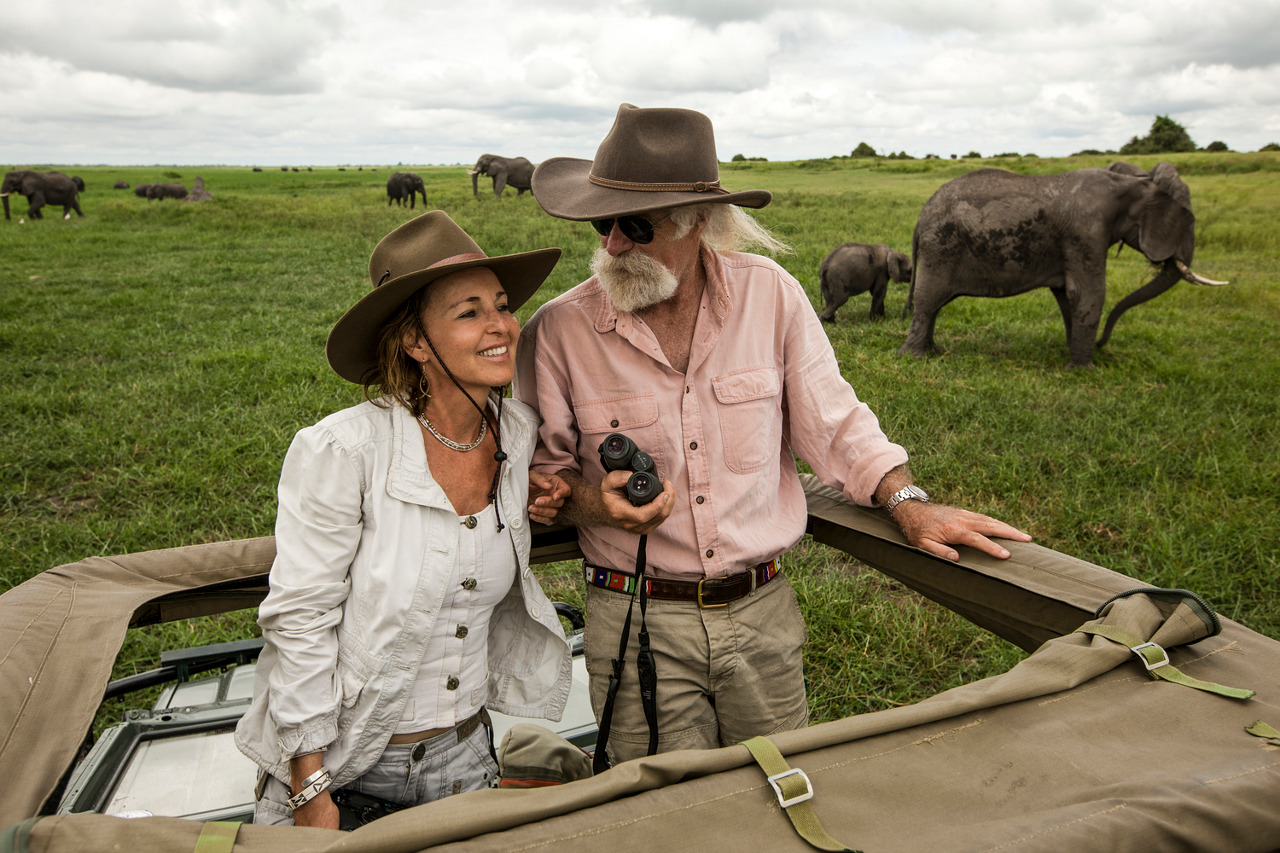Save 3,000 animals
Project Rewild Zambezi is an emergency conservation initiative that aims to save and translocate over 3,000 animals facing population pressure — including elephants, wild dogs, lions, eland, impala, zebra, wildebeest and other species.
With climate change and resource scarcity threatening species all over the world, it is important to understand whether translocations can provide a viable solution and, if so, how they should be conducted. A properly executed rewilding project would have an unprecedented effect not only on the 3,000 animals that would otherwise have been culled, but also on broader scientific knowledge for ZimParks and the broader MZBR.
As of September 2022, Great Plains Foundation has successfully completed the first phase of the translocation effort comprised of 101 elephants and 184 impalas. This smaller scale, successful translocation lays the groundwork, provides lessons learned and establishes best practice within the team for larger scale translocations.
In short, this project will save nearly 3,000 animals and see them released into the center of a unique and iconic ecosystem on the banks of the Zambezi River, an amazing opportunity for both these animals and the wider Zambezi Valley.
Rewild Zambezi
Because of prolonged drought conditions, the Savé Valley Conservancy – one of the largest private game reserves in Africa – has determined they are beyond carrying capacity. Wildlife authorities have advised that the Conservancy must either kill or relocate the animals. With the permission of Zimbabwe Parks & Wildlife Management Authority, Great Plains Foundation and Great Plains Conservation will lead the wildlife translocations.
The Savé Valley Conservancy (SVC)
The Savé Valley Conservancy (SVC), located in the Southeastern lowveld in Zimbabwe, contains roughly 750,000 acres of diverse wildlife habitat and is home to most Southern African wildlife species. The Conservancy consists of privately owned, government-owned, and community-owned properties that are aligned under a constitution to manage animal populations on a landscape scale.
ZimParks determined the land can no longer support the current wildlife population. SVC must either cull/hunt 3,200 animals from the population or translocate the animals to a new location.
The new location - The Sapi Reserve
Great Plains’ 250,000-acre Sapi Reserve is the perfect location to provide long-term protection these animals. Great Plains jointly manages this important Buffer Zone in the Middle Zambezi Biosphere Reserve with Zimbabwe Parks & Wildlife Management Authority (ZimParks). Tragically, decades of hunting decimated Sapi’s wildlife populations including iconic species such as lion, elephant, and the critically endangered black rhino which was eliminated from the landscape entirely. When Great Plains began managing the land in 2017, we immediately put a stop to all hunting and established a small sustainable, non-consumptive tourism footprint to help restore the Sapi ecosystem.
Relocating SVC’s wildlife to the Sapi Reserve holds the potential to restore biodiversity in the area and provide a platform for scientific research that will enrich the conversation about relocation and rewilding efforts.
Translocation 2022 (completed)
In September 2022, Great Plains Foundation successfully completed the first phase of the translocation effort comprised of 101 elephants and 184 impalas. This smaller scale, successful translocation lays the groundwork, provides lessons learned and establishes best practice within the team.
Monitoring & Research - 2023 & 2024
- Recruitment and training of wildlife monitoring units
- Ongoing research/surveys by WildCru and University of Washington-Seattle
- Produce final report of elephant research study
- By end 2024, conclude onboarding a minimum of 24 wildlife monitoring units
- Ongoing security and monitoring operations
- Ongoing monitoring of all introduced species for at least three years
Continue Translocation - in 2025Year 2023
2023 - Rewild Zambezi - donation of USD 50,000
We were able to transfer the promised USD 50,000 to the Great Plains Foundation for Rewild Zambezi at the end of February 2023. Our site visit in June 2023 shows construction work on the new Research Center.
Our partner
Dereck & Beverly Joubert - Great Plains Foundation
Dereck and Beverly Joubert are globally recognized, award-winning filmmakers, conservationists, and National Geographic explorers-in-large based in Botswana. Their mission for more than 30 years has been the conservation of key wildlife species, with a focus on large predators. They are the owners of Great Plains Conservation, which operates some of the most beautiful camps in Botswana and Kenya. Through the Great Plains Foundation, various nature conservation projects are driven forward.

The Jouberts have published 12 books, produced 30 films for National Geographic, and written half a dozen scientific papers as well as many articles for National Geographic magazine. They have received 8 Emmy Awards, a Peabody Award, a Grand Teton Award, multiple Golden Panda Awards, a World Ecology Award (along with Britain’s Prince Charles, Sylvia Earle, and paleoanthropologist Richard Leakey), and a Presidential Order of Merit awarded by Botswana’s ex-president, Seretse Khama Ian Khama, for their conservation work.
The Jouberts’ films have received widespread attention and have been viewed by millions of people. Films like «Eternal Enemies», «The Last Lions», «Soul of the Elephant» and their masterpiece «Eye of the Leopard» are known world-wide. For more information, please visit their website
www.wildlifefilms.co
All of Dereck & Beverly's work has one goal: to save the wild areas of Africa and protect the wildlife that depends on them. The President of Botswana described them aptly when he said, "Theirs is a life long passion; for each other, for big cats, for Africa...they are true "children of Africa."
